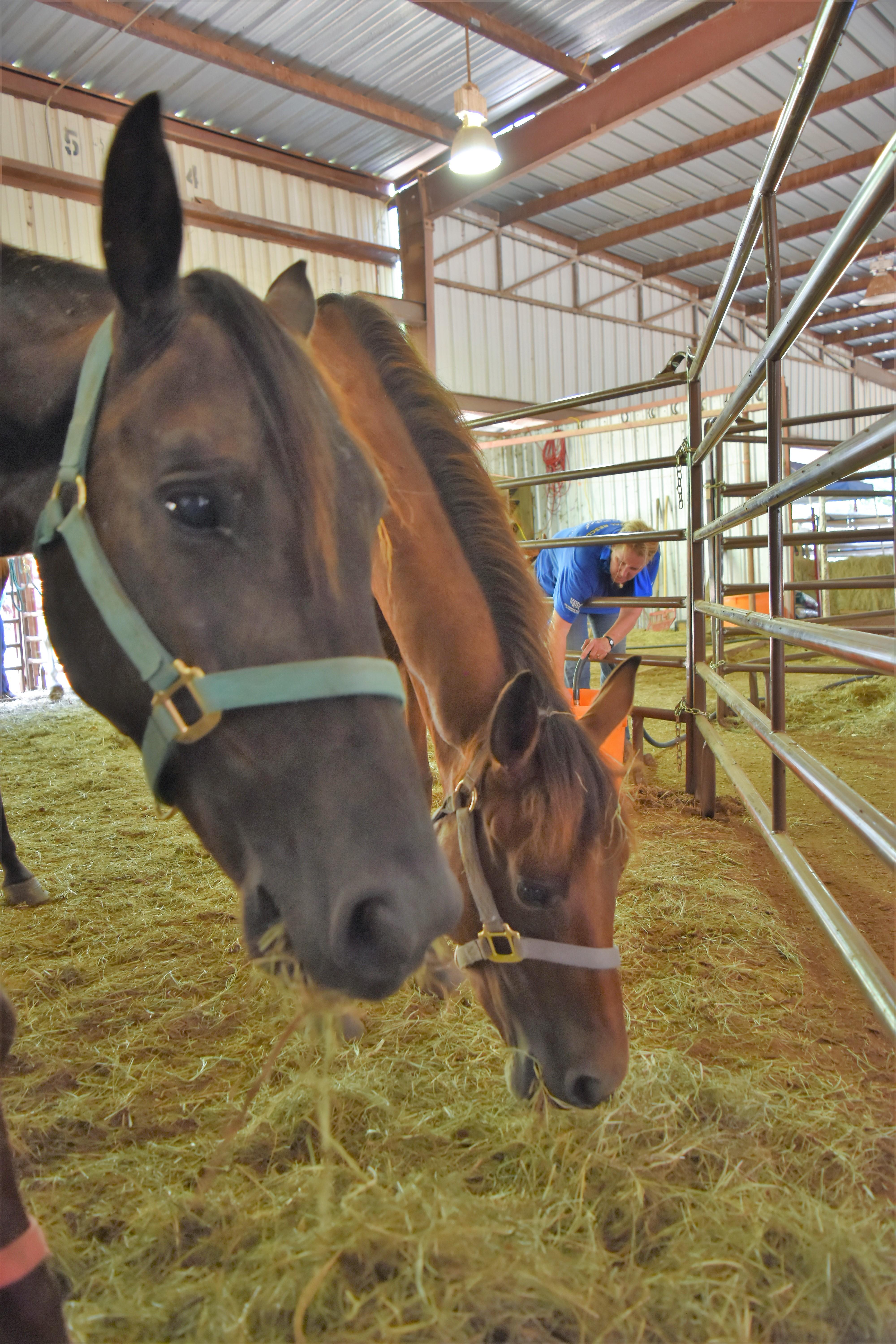
159 Horses Seized From Texas Rescue in June, How Readers Can Help
In mid-June, 159 horses were rescued from an organization in Texas claiming to be a rescue. Cases like these are completely preventable. Here’s how you can help.
On June 27, 2019, local law enforcement in Camp County, TX seized 159 severely neglected equines from Scarlet’s Legacy Equine Rescue. The equines currently reside at an undisclosed location affiliated with Safe Haven Equine Rescue.
Scarlet’s Legacy, managed by Deanna Tierney, was a 501(c)(3) located on a 45-acre property; this case was extensively covered by local media including the Pittsburg Gazette, whose initial Facebook post about the seizure gained over 2,000 shares. We contacted Charlene Hamm of Safe Haven Equine Rescue and the HSUS, who relayed HSUS Animal Crimes Director Jessica Johnson’s responses, to inquire about the animals’ needs and what can be done to prevent future situations like this. According to both, here are the equines’ biggest needs:
- Feed
- Hay
- Hay bags
Other necessary items can be found on Safe Haven’s Amazon Smile wishlist. Hay and feed donations can be made directly to Safe Haven Equine Rescue and coordinated with Richard Fincher, executive director, at 903-762-1432. Donations can also be made online at safehavenequinerescue.com/donation.
Regarding how to prevent future situations like this, Johnson said, “If people are thinking about working with or adopting from a rescue, we urge them to go visit the property. Visit, spend some time there, see if they can volunteer.”
When dealing with an out-of-state rescues, check with local law enforcement or animal control to find out if the organization is in good standing or if there’s a history of complaints. If you suspect neglect, Johnson said “If you see something, say something.” Report the organization to local law enforcement or animal control. If you suspect your report hasn’t been followed through, continue following up.
Procedures vary depending on the situation, per another HSUS representative: “In some situations, law enforcement will try to work with people once an animal welfare concern arises,” providing opportunities for compliance before animals are seized. The HSUS does have a tip line, but encourages everyone to work with local law enforcement first.
Hamm, of Safe Haven, said the “best place to start” finding out if a rescue is what they claim is to check their certifications and transparency. Safe Haven “is certified by the Global Foundation of Animal Sanctuaries, is a Better Business Bureau accredited charity, an EQUUS Foundation 2019 Guardian, a GuideStar Platinum Participant and a Great Nonprofits Top-Rated Nonprofit,” said Hamm. He added that these accreditations and certifications are a good place to check on other rescue organizations, alongside checking online reviews and the organization’s IRS 990 status and 501(c)(3) status — all should be readily available. Otherwise, before supporting an organization, check out the facilities if possible and note availability of shelter, hay and water.
Education is the best prevention, according to Hamm, who added, “Many people have good intentions but don’t set limits for themselves. Bailing a horse out of a kill pen or rescuing it from neglect or abuse all have major time and financial obligations” on the rescuer’s part. “True animal rescues know their limits.”
If neglect is suspected, again, contact local law enforcement and follow up if it’s suspected the report hasn’t been followed through. Hamm added, “If you do not receive the answers you need [after following up] then contact a local rescue group to follow-up with law enforcement.” To help prevent abuse, Hamm said to contact local government representatives and lobby for stricter animal welfare laws.
The takeaway? If you see something, say something. Then follow up and keep following up. Check out organizations before supporting them; any legitimate, valid rescue should be willing to answer questions.
Follow the Camp County equines’ recovery on Safe Haven Equine Rescue’s Facebook page, through the Pittsburg Gazette’s articles or on Safe Haven’s website.









Leave a Comment